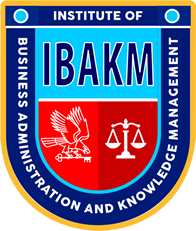Lecture: Commitment and Accountability in the Workplace

By MOSES OLANIYI ADEGBAYI, BSc, MSc, MBA, FIBAKM, FCBA, FCKM, FCIA
Commitment and accountability in the workplace
Facts and knowledge are very relevant in our business and carrier
Schooling will get you a job, but commitment to learning will make you a leader
Whosoever desires change of levels must be committed and stay dedicated to service
WHAT IS COMMITMENT
COMMITMENTS:- is the state or quality of being dedicated to a cause, activity, etc
Making a commitment involves dedicating yourself to something e.g. like a person or a cause.
Commitment to work is defined as the level of enthusiasm an employee has towards his/her tasks assigned at a workplace. It is the feeling of responsibility that a person has towards the goals, mission, and vision of the organization he/she is associated with.
Positive work engagement results in: acts of loyalty to the company, a sense of belonging to the team.
ANOTHER WORD FOR COMMITMENT IS: – Dedication: – Dedication means to be deadly committed to your assignment.
Those who are dedicated and diligent will be committed
A committed worker will be creative
A creative worker will be productive
A productive worker will be successful
A successful worker will command and impactful followership.
When you are impactful, you will stand before kings and not mere men.
How does commitment lead to success?
The stronger your commitment, the more likely you are to succeed as you refuse to give up . You make more disciplined and productive decisions — and you are more willing to go out of your comfort zone. That’s what it takes to achieve success.
Why is commitment important in workplace?
When employees are committed to their work and place of business, they are more likely to be happy and stay productive.
Committed employees take ownership of their work and are ambassadors for their company, both inside and outside of office doors.
What are the characteristics of commitment?
6 Signs that prove you are a committed person
1. You adapt easily. You are adaptable to any situation, because the goal is more important to you than anything that stands in the way of it.
2. You are very tolerant. Commitment requires tolerance.
3. You are dependable.
Do what you say you will do. If you make a commitment, live up to it. …
Be timely. Showing up on time shows people you care. …
Be responsible. Be organized. …
Be accountable. …
Be consistent.
4. You are focused: – Giving a lot of attention, time, effort, etc. to one particular area of a business, and knowing exactly what you want to achieve.
5. You are passionate:- showing strong feelings
6. You are straightforward:- honest, frank, candid, open, truthful, sincere
How to improve commitment to work
Improving work commitment cannot happen in just one day. It takes time to bring superior levels of commitment at work. Here are some of the things organizations can incorporate to bring in effective and immediate changes:
1. Build a strong team
Teamwork does wonder! Organizations must build a culture where working in teams should be important. Achieving targets together makes difficult tasks look easily achievable. Teamwork depends on how well employees are able to interact with each other and work in together, how well they can perform as a group.
2. Let your employees know what you expect from them
Hard-working employees are an asset to an organization. Most employees want to be a part of a success story of the organization they are associated with. Therefore, it is important to communicate clearly the goals, vision, and mission clearly to the employees. This way employees would know what the organization expects of them. Clarity of thoughts is important at least during the tenure for which the employee is associated with the organization. With clarity comes the determination to work and achieve excellence.
3. Promote a culture of transparency
Let there be transparency in the organization. Let the employees participate freely in the discussions, important decisions related to employees, and an important contribution they can make towards the organization. When an organization keeps employees informed, they feel valued and trustworthy. This increases their sense of belonging and in turn increases commitment to work.
4. Encourage open and free communication
Open and free communication in an organization facilitates an environment of trust. Open door policy is one such way of promoting free communication. Alternatively, an organization can use employee satisfaction surveys, etc to give their feedback to the organization.
On receiving this feedback, organizations need to keep an open mind to understand where they not meeting employee expectations and how they can improve work culture, without criticizing the employees who have provided the feedback. Put this feedback to use. Once employees know their suggestions or feedback are valued there will be an increase in work commitment.
5. Strong work ethics
Work ethics not only include how an employee feels about his/her job or career but also, how seriously does he/she take their work responsibilities. This involves attitude, behavior, and respect for coworkers, effective communication, and interaction at the workplace. Work ethics demonstrates who and how a person is.
. When employees witness such values in an organization they are tempted to stay around and be committed to the organization.
6. Culture of trust
What is trust? Trust is an essential factor that brings exceptional results in any relationship, especially at work and in professional life. Trust is not a simple nameplate on the door, a welcoming sign telling employees, “we provide trust here”. It encompasses a whole lot of effort from the top-level management and the organization as a whole to bring in and promote that culture in the organization. Trust is earned by putting in constant efforts in actions and deeds. When organizations promote such a culture, they have earned themselves employees who will truly impact organizations in all the right ways, thus increasing work commitment.
7. Innovation is the strategy
Let your employees be innovative in providing ideas, strategies, ways of communication, etc. Innovators are committed employees. These employees are always looking for better ways to do even the most ordinary tasks. Such employees should be valued by the organizations and encourage them to come up with better ideas and rewards for their achievements and innovations.
8. Help your employees grow
An organization that helps its employees grow professionally and personally and respond to their ideas in a positive manner is bound to have people working for them for a longer period of time. An organization can support their employees by providing them with learning opportunities, cross-training, and any other interactive method that support their overall development. Such gestures help organizations retain their employees at the same time employees are more committed to their work.
9. Provide incentives
Organizations need to reward employees who perform exceptionally well. Every person has different things that motivate them. Incentives that are related to accounting and the results make employees feel important. It is important for organizations to recognize the hard work employees put in to achieve the desired result. Incentives should be assigned based on the criteria of the objectives.
10. Celebrate success together
Employees need to feel validated and that they are valued by the organization. Leadership needs to show them, they are looked after. Employees don’t leave an organization if they know their opinions matter if they are treated fairly, if their achievements are recognized and if they feel they are an integral part of an organization.
Celebrate success with your employees, tell them they have made a difference, and encourage them to do better. Even the slightest gesture will lead them to do better with each passing day. This will lead to a better commitment at work.
WHAT IS ACCOUNTABILITY
Accountability is the act of being transparent in your all your dealings –
What does accountability mean in the workplace? Accountability in the workplace means that all employees are responsible for their actions, behaviours, performance and decisions. It’s also linked to an increase in commitment to work and employee morale, which leads to higher performance.
You are not only accountable to God but also to men.
Open accountability is not an option but a must.
A wise man once said, “Endeavour to live an open life before men. Have nothing to hide. When you begin to hide things about yourself, you provoke people to want to discover what you are hiding and most often they discover the wrong things about you which can be disastrous to you”.
Employees being consistent in doing the right thing in all aspects pertaining to their job.
Accountability means the state of being responsible or answerable for a system, its behavior, and its potential impacts. Accountability is an acknowledgement of responsibility for actions, decisions, and products. Responsibility can be legal or moral (ethical).
WHY ACCOUNTABILITY?
1. It is necessary to keep the organization healthy and not look like a cult
2. It helps you to retain your stewardship with God and man
3. When you are no more accountable, your stewardship will be terminated.
4. It is a true measure of your faithfulness
5. It secures your place in God’s programme and in the organization where you work.
STRATEGIES FOR ACCOUNTABILITY
a. Operate in the fear of God –
b. Be conscious of being under supervision –
c. Be conscious of the law of seedtime and harvest –
How do you build accountability in the workplace?
1. Lead by example and hold yourself accountable first. …
2. Set team goals. …
3. Work on your feedback skills. …
4. Create a culture of two-way feedback. …
5. Make accountability a habit. …
6. Keep track of your commitments and hold each other accountable.
BENEFITS OF OPEN ACCOUNTABILITY
1. It makes things work smoothly –
2. It enhances trust.
3. It provokes unity.
4. It does not give room to doubt. Every environment of doubt breeds suspicion.
5. It brings rest. Tension is eradicated.


